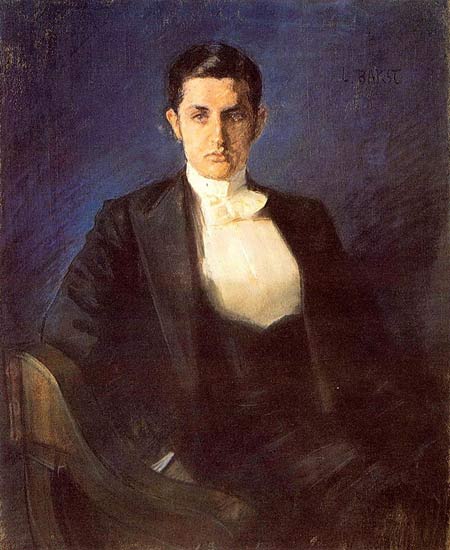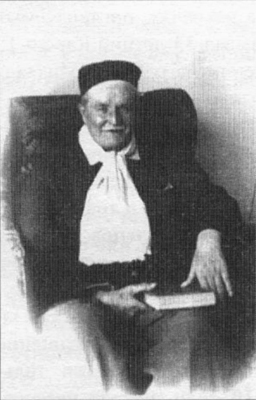<Back to Index>
- Writer and Critic Dmitry Vladimirovich Filosofov, 1872
PAGE SPONSOR


Dmitry Vladimirovich Filosofov (April 7 (O.S. March 26), 1872, Saint Petersburg, Russia - August 4, 1940, Otwock, Poland) was a Russian author, essayist, literary critic, religious thinker, newspaper editor and political activist, best known for his role in the early 1900s influential Mir Iskusstva circle and part of quasi - religious Troyebratstvo (The Brotherhood of Three), along with two of his closest friends and spiritual allies, Dmitry Merezhkovsky and Zinaida Gippius.
Dmitry Filosofov was educated first in the private K. May's gymnasium (where he first met Alexandre Benois and Konstantin Somov), then in the Saint Petersburg University, studying law. After a couple of years spent abroad, he started working as a journalist, writing for Severny Vestnik, Obrazovanye, etc. With the inception of Mir Iskusstva magazine, Filosofov became the editor - first of literary, then of literary criticism sections. It was at this time that his close friendship with Dmitry Merezhkovsky and Zinaida Gippius begun; soon he joined them to form Troyebratstvo, a notorious quasi - religious group, a kind of domestic sect almost, claiming to aim at renovating Christian values along the new, modernist lines.
Along with Merezhkovsky he was one of the initiators and practical organizers of - first the Religious - Philosophical Society, then the New Path magazine, which he edited in 1904, the last year of its existence. The years 1906 - 1908 he spent with the Merezhkovskys in Paris; when back in Russia he continued writing, contributing to Slovo and Russkaya Mysl among others.
Sharing the Merezhlovskys' hostility towards Bolshevist Russia, in December 1919 he fled the country but refused to follow the couple down to Paris. Instead, along with Boris Savinkov, the notorious terrorist - turned - novelist, he struck a friendship with, Filosofov chose to stay in Warsaw to begin working on the reformation of the White Army on the territory of Poland. He was a coordinator of Russian Political Committee, one of the leaders of the so called People's Union for Defense of Motherland and Freedom, and Piłsudski's counselor. Choosing to stay at Poland, but visiting Paris occasionally, Filosofov edited numerous Russian immigrant newspapers, including Svoboda (Freedom, 1920 – 1921), Za Svobodu (1921 – 1932), Molva (People's Talk, 1932 – 1934), co-edited Paris - Warsaw magazine Myech (Sword, 1934 – 1939).
Dmitry Filosofov died in Otwock near Warsaw on August 4, 1940 and is buried at the Orthodox Cemetery in Warsaw.